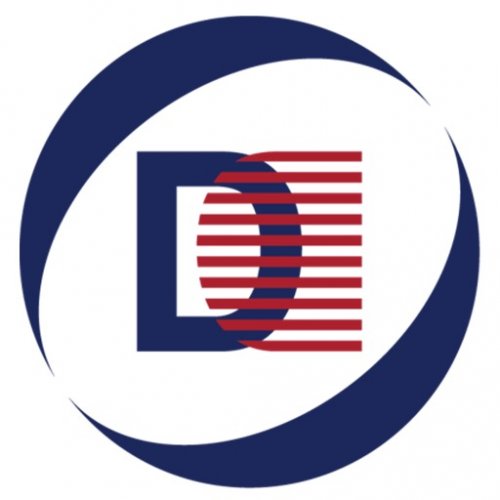Best Appeal Lawyers in Cambodia
Share your needs with us, get contacted by law firms.
Free. Takes 2 min.
Or refine your search by selecting a city:
List of the best lawyers in Cambodia
About Appeal Law in Cambodia
The system of appeals in Cambodia is grounded on the principles of a democratic society where individuals have the right to question and challenge any legal decisions or judgments that they believe are unjust or incorrect. The appeals process in Cambodia, a mechanism integral to the nation's legal system, is intended to ensure that justice prevails. This process allows any party who perceives an error in a lower court's judgment to seek reconsideration from a higher court, a concept that's ingrained in Cambodia's Civil, Criminal and Administrative procedures.
Why You May Need a Lawyer
Filing an appeal involves a complex web of rules and procedures that can easily overwhelm an individual. It’s prudent to hire a lawyer if you're filing an appeal due to substantial errors that you think occurred in the original trial. You may need a lawyer to guide you through reviewing and identifying errors in the judge's application of the law, reviewing and understanding all aspects of the legal documentation, preparing your appeal, and presenting your argument effectively. A lawyer experienced in appeal cases is crucial to help you navigate this complex process and to ensure that your legal rights are vigorously defended.
Local Laws Overview
While Cambodian law does allow appeals, these should be lodged within a specific timeframe following the initial decision or sentence. This timeframe may vary; for instance, under the Cambodian Criminal Code, appeals should be lodged within one month. There are two stages of the appellate system in Cambodia: the Appellate Court and the Supreme Court. A case may be appealed on both legal and factual grounds. Keep in mind that not all cases are eligible for appeal, so understanding the local laws is critical. Filing an appeal does not guarantee a change in the original judgment, but it does provide an opportunity for the case to be considered afresh.
Frequently Asked Questions
What are the grounds for appeal in Cambodia?
Grounds for appeal typically include allegations of errors of law, errors of procedure, or allegations of deficits in the factual findings of the original court.
What is the timeframe for filing an appeal?
Typically, appeals in criminal cases must be filed within one month of the original judgment, though timeframes may vary, necessitating consultation with a legal expert.
Will filing an appeal automatically stay the execution of a sentence?
No, filing an appeal does not automatically stay the execution of a sentence. The convicted individual must specifically request a stay of execution.
What is the difference between the Appellate Court and Supreme Court in Cambodia?
The Appellate Court is the first level of appeal whereas the Supreme Court is the final level of appeal in Cambodia.
Can I represent myself in an appeal?
While it is technically possible to represent oneself, it is highly advised to seek legal representation due to the complexity of the appeal process.
Are all cases eligible for appeal?
No, not all cases are eligible for appeal. Consulting with a legal expert is important to determine if your case is eligible.
Does filing an appeal guarantee a change in the original judgment?
No, filing an appeal does not guarantee a change in the original judgment. It provides another opportunity for the case to be heard and possibly reconsidered.
Can an appeal result in a harsher sentence?
Theoretically, it is possible that an appeal can result in a harsher sentence, but this occurrence is relatively rare.
What is required to file an appeal?
To file an appeal, a written statement expressing the desire to appeal and grounds of appeal is necessary. Detailed requirements may vary, which is why legal representation is desirable.
How long does an appeal process take?
The length of the appeal process varies depending on the specifics of the case. It may take several months to more than a year.
Additional Resources
Several resources are available for understanding the legal landscape of appeals in Cambodia. The 'Cambodia Law Services' and 'Legal Aid Cambodia' offer legal services and resources for those seeking information on the appeals process. The 'Cambodian Defenders Project' provides legal representation for those who cannot afford a lawyer. Additionally, the 'Courts of Cambodia' website provides useful information on the workings of the Cambodian judicial system.
Next Steps
If you are considering an appeal, your first step should be to consult with a legal professional in Cambodia who is well-versed in appellate law. Compile all necessary documents related to your case, including the original judgment. Discuss with your lawyer the grounds for your intended appeal, and process the necessary forms promptly to ensure they are within the time limits prescribed by the law. Remember, while the appeals process can be long and taxing, it is a vital part of ensuring justice within the Cambodian legal framework.
Lawzana helps you find the best lawyers and law firms in Cambodia through a curated and pre-screened list of qualified legal professionals. Our platform offers rankings and detailed profiles of attorneys and law firms, allowing you to compare based on practice areas, including Appeal, experience, and client feedback.
Each profile includes a description of the firm's areas of practice, client reviews, team members and partners, year of establishment, spoken languages, office locations, contact information, social media presence, and any published articles or resources. Most firms on our platform speak English and are experienced in both local and international legal matters.
Get a quote from top-rated law firms in Cambodia — quickly, securely, and without unnecessary hassle.
Disclaimer:
The information provided on this page is for general informational purposes only and does not constitute legal advice. While we strive to ensure the accuracy and relevance of the content, legal information may change over time, and interpretations of the law can vary. You should always consult with a qualified legal professional for advice specific to your situation.
We disclaim all liability for actions taken or not taken based on the content of this page. If you believe any information is incorrect or outdated, please contact us, and we will review and update it where appropriate.
Browse appeal law firms by city in Cambodia
Refine your search by selecting a city.









